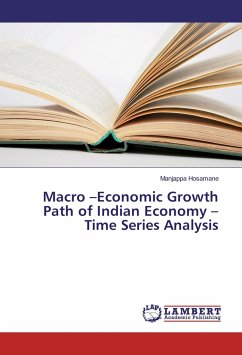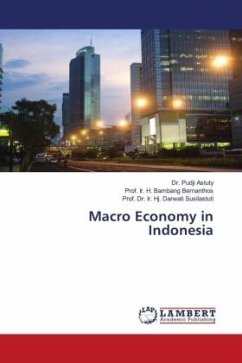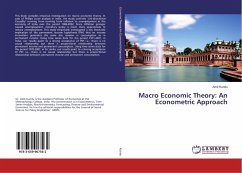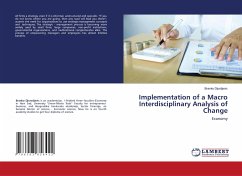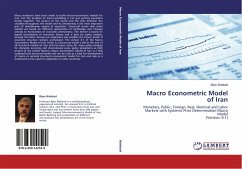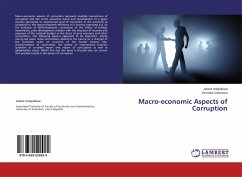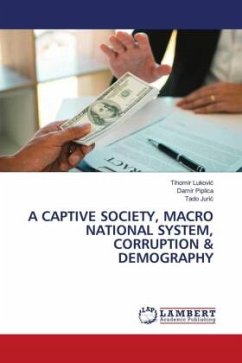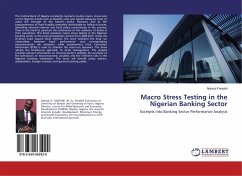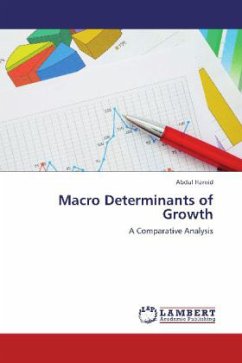
Macro Determinants of Growth
A Comparative Analysis
Versandkostenfrei!
Versandfertig in 6-10 Tagen
52,99 €
inkl. MwSt.

PAYBACK Punkte
26 °P sammeln!
Traditional growth theories have been emphasizing foreign aid and trade as important elements of growth for developing countries. However, in most of the developing countries this did not materialize. Endogenous growth theory (EGT) proposes for developing countries to accelerate their development by pulling themselves into the information economy through more efficient use of available resources, especially human capital. The notion of EGT is focusing on long run development as determined by systemic forces. According to traditional neoclassical models, accumulation leads to diminishing return...
Traditional growth theories have been emphasizing foreign aid and trade as important elements of growth for developing countries. However, in most of the developing countries this did not materialize. Endogenous growth theory (EGT) proposes for developing countries to accelerate their development by pulling themselves into the information economy through more efficient use of available resources, especially human capital. The notion of EGT is focusing on long run development as determined by systemic forces. According to traditional neoclassical models, accumulation leads to diminishing returns to scale; EGT, however, suggests that human capital development entails a positive relationship between scale and productivity, thereby outweighing the impact of diminishing returns while implying growth in form of spillovers with increasing returns. Spillovers occur when input accumulation causes positive effects on productivity and other factors without cost or reward; thus, productivityrises offsetting diminishing returns. Making better use of material as well as human resources and technological change becomes a major contributor to growth in the long run on a sustained basis.



